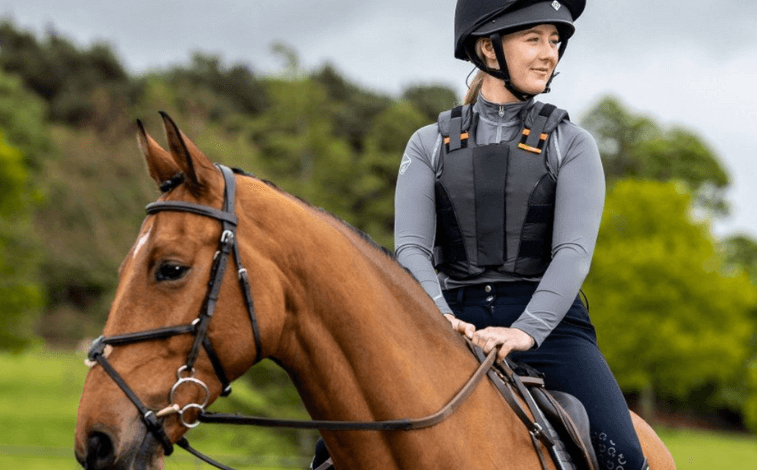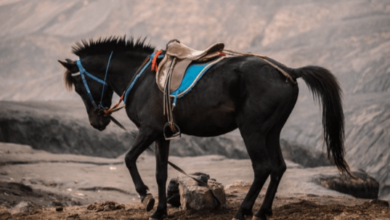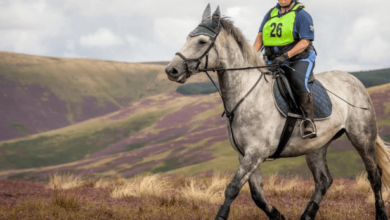What should you do if you fall off a horse?

Assessing the Situation
When you fall off a horse, the first thing to do is to assess the situation. Remain calm and try to evaluate your surroundings and your condition. Are you in a safe location away from the horse’s hooves and any other potential dangers? If you can, move to a safer spot to further assess any injuries.
Checking for Injuries
After ensuring you’re in a safe location, it’s crucial to check for injuries. Begin with a head-to-toe assessment. Look for obvious signs of injury like cuts, bruises, or broken bones. Pay special attention to your head, neck, and spine, as injuries in these areas can be severe.
Moving Safely
If you determine that you are not seriously injured, try to move slowly and carefully. Avoid making any sudden movements that could exacerbate any minor injuries or cause additional harm. If you feel any sharp pain or discomfort, stop moving immediately and wait for assistance.
Calling for Help
If you suspect any serious injury, it is vital to call for help. Use your phone to contact emergency services or call out for assistance if there are people nearby. It’s important not to try and tough it out, as untreated injuries can worsen.
Reassuring the Horse
After you’ve ensured your safety, it’s time to check on your horse. Horses can become frightened or disoriented after a fall. Approach your horse slowly and calmly to avoid spooking them further. Reassure them with a calm voice and gentle touch.
Seeking Medical Attention
Even if you feel fine after the fall, it’s always a good idea to seek medical attention. Some injuries may not be immediately apparent but can develop into serious issues if left untreated. A medical professional can provide a thorough assessment and recommend any necessary treatments.

Dealing with Shock
Falling off a horse can be a traumatic experience, and it’s not uncommon to go into shock. Symptoms of shock can include rapid breathing, sweating, and confusion. If you experience any of these symptoms, it’s important to lie down with your legs elevated and stay warm until help arrives.
Understanding Common Injuries
Being aware of common injuries from falling off a horse can help you understand what to look out for. These can include fractures, sprains, bruises, and concussions. Knowing these can also help you communicate effectively with medical professionals.
Immediate Post-Fall Care
After a fall, it’s important to take care of yourself. Rest and ice any areas that feel sore or bruised. Avoid any strenuous activity until you’ve fully recovered. Taking proper care of yourself in the immediate aftermath can speed up the healing process.
Evaluating Equipment
Inspect your riding equipment after a fall. Check your saddle, bridle, and other tack for any damage that might have contributed to the fall. Ensuring your equipment is in good condition can prevent future accidents.
Reporting the Incident
If you fell off a horse while on a professional ride or at a riding facility, report the incident to the appropriate personnel. They need to be aware of what happened for safety records and to take any necessary precautions for future rides.
Learning from the Experience
Take time to reflect on what happened and what you can learn from the experience. Understanding what led to the fall can help you improve your riding skills and prevent future falls.
Regaining Confidence
Falling off a horse can be a blow to your confidence. It’s important to take steps to regain your confidence in the saddle. Start by riding in a controlled environment and gradually work your way back to more challenging rides.
Safety Gear Importance
Wearing proper safety gear can significantly reduce the risk of injury. Always wear a well-fitted helmet and consider using other protective gear like body protectors and riding boots.
Getting Back in the Saddle
Once you feel physically and mentally ready, it’s time to get back in the saddle. Take it slow and don’t rush the process. Riding a calm, reliable horse can help ease you back into riding.
Improving Riding Skills
Improving your riding skills can help prevent future falls. Consider taking lessons with a professional instructor who can help you refine your techniques and build confidence.
Building Core Strength
Strong core muscles can improve your balance and stability while riding. Incorporate core-strengthening exercises into your routine to enhance your riding performance and reduce the risk of falls.
Practicing Proper Mounting and Dismounting
Proper mounting and dismounting techniques can also prevent falls. Make sure you’re mounting and dismounting correctly every time you ride to avoid unnecessary accidents.
Understanding Your Horse’s Behavior
Understanding your horse’s behavior can help you anticipate and prevent falls. Learn to read your horse’s body language and signals to stay ahead of potential problems.
Training Your Horse
A well-trained horse is less likely to spook or misbehave. Invest time in training your horse or seek the help of a professional trainer to ensure your horse is well-behaved and responsive.
Creating a Safe Riding Environment
Riding in a safe environment can reduce the risk of falls. Make sure the riding area is free of hazards and is well-maintained. Riding in an arena or other controlled environment can also enhance safety.
Riding with a Buddy
Riding with a buddy can provide extra safety and support. If something goes wrong, having someone with you can make a significant difference.
Understanding Trail Safety
If you ride on trails, understanding trail safety is crucial. Be aware of the terrain, wildlife, and other potential hazards. Always let someone know your route and expected return time.
Participating in Riding Clinics
Riding clinics can offer valuable insights and techniques to improve your riding skills. Consider attending clinics to learn from experienced riders and trainers.
Staying Calm in Emergencies
Staying calm in emergencies can help you handle the situation better. Practice emergency drills and mentally prepare yourself for potential accidents.
Preparing for the Unexpected
Preparation can prevent panic in unexpected situations. Always have a plan in place for emergencies and ensure you have a first aid kit and emergency contact numbers handy.
Understanding the Psychological Impact
Falling off a horse can have a psychological impact. It’s important to acknowledge any fear or anxiety and seek support if needed. Talking to a therapist or joining a support group can be beneficial.
Encouraging a Positive Mindset
Maintaining a positive mindset can help you recover from a fall. Focus on your progress and celebrate small victories as you get back into riding.
Setting Realistic Goals
Set realistic goals for your recovery and return to riding. Don’t rush the process and give yourself the time needed to heal both physically and mentally.
Ensuring Proper Nutrition
Proper nutrition can aid in your recovery. Eating a balanced diet with plenty of vitamins and minerals will support your body’s healing process.
Importance of Hydration
Staying hydrated is essential for overall health and recovery. Make sure you’re drinking enough water, especially after a fall when your body needs to repair itself.
Seeking Professional Guidance
Don’t hesitate to seek professional guidance if you need it. Riding instructors, therapists, and medical professionals can all provide valuable support and advice.
FAQs
What should you do immediately after falling off a horse? First, ensure you are in a safe location away from the horse and check for injuries. Move carefully and call for help if needed.
How can you tell if you have a serious injury after falling off a horse? Look for symptoms like severe pain, swelling, difficulty moving, or loss of consciousness. Seek medical attention if you experience any of these symptoms.
Is it normal to be afraid to ride again after falling off a horse? Yes, it’s normal to feel fear after a fall. Take your time to regain confidence and consider working with a professional to help you overcome this fear.
What kind of safety gear should you wear while riding a horse? Always wear a well-fitted helmet, and consider additional gear like body protectors and riding boots to enhance safety.
How can you prevent falls while riding a horse? Improve your riding skills, understand your horse’s behavior, ensure your equipment is in good condition, and always ride in a safe environment.
What steps can you take to regain confidence after falling off a horse? Start with riding in a controlled environment, take lessons with a professional, and gradually work your way back to more challenging rides. Focus on small victories and maintain a positive mindset.
Conclusion
Falling off a horse can be a frightening and potentially dangerous experience, but knowing what to do can make all the difference. By assessing the situation, checking for injuries, seeking medical attention, and taking steps to regain confidence, you can recover effectively and get back to enjoying your rides. Always prioritize safety, wear appropriate gear, and continuously work on improving your riding skills to minimize the risk of future falls.





